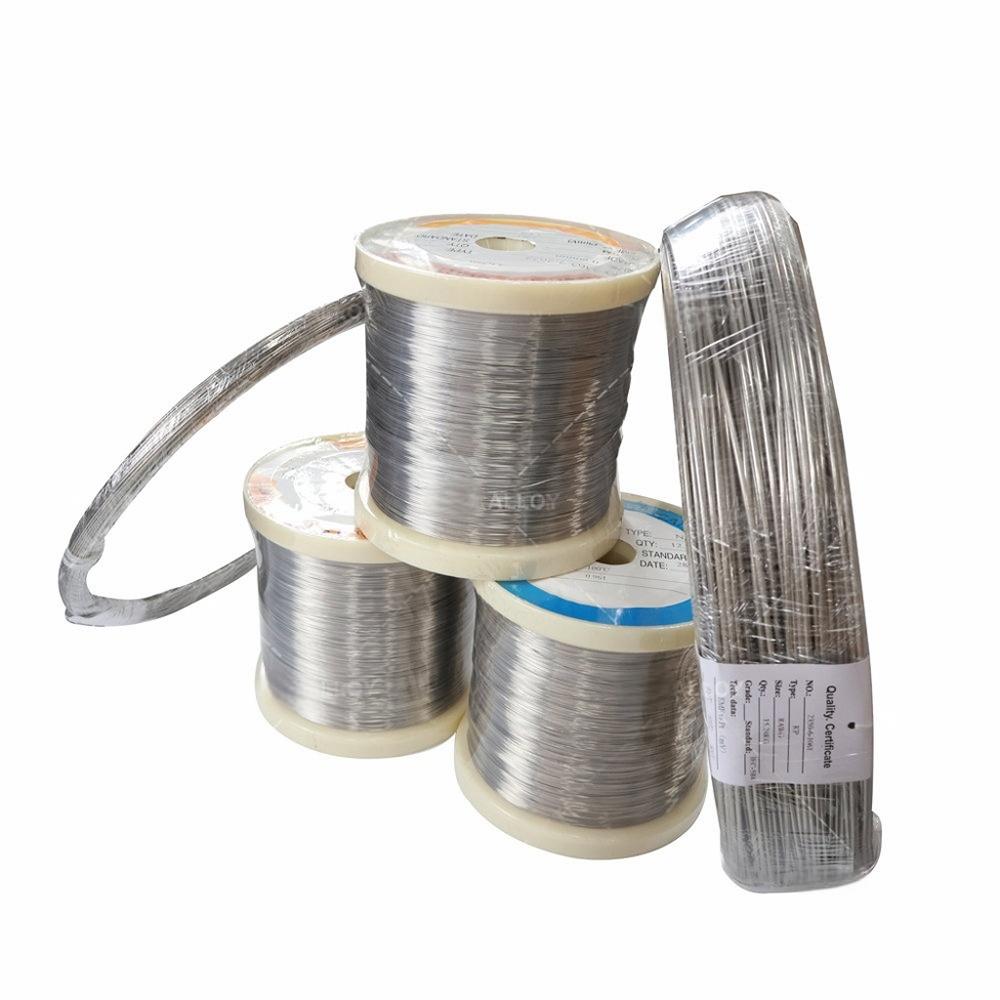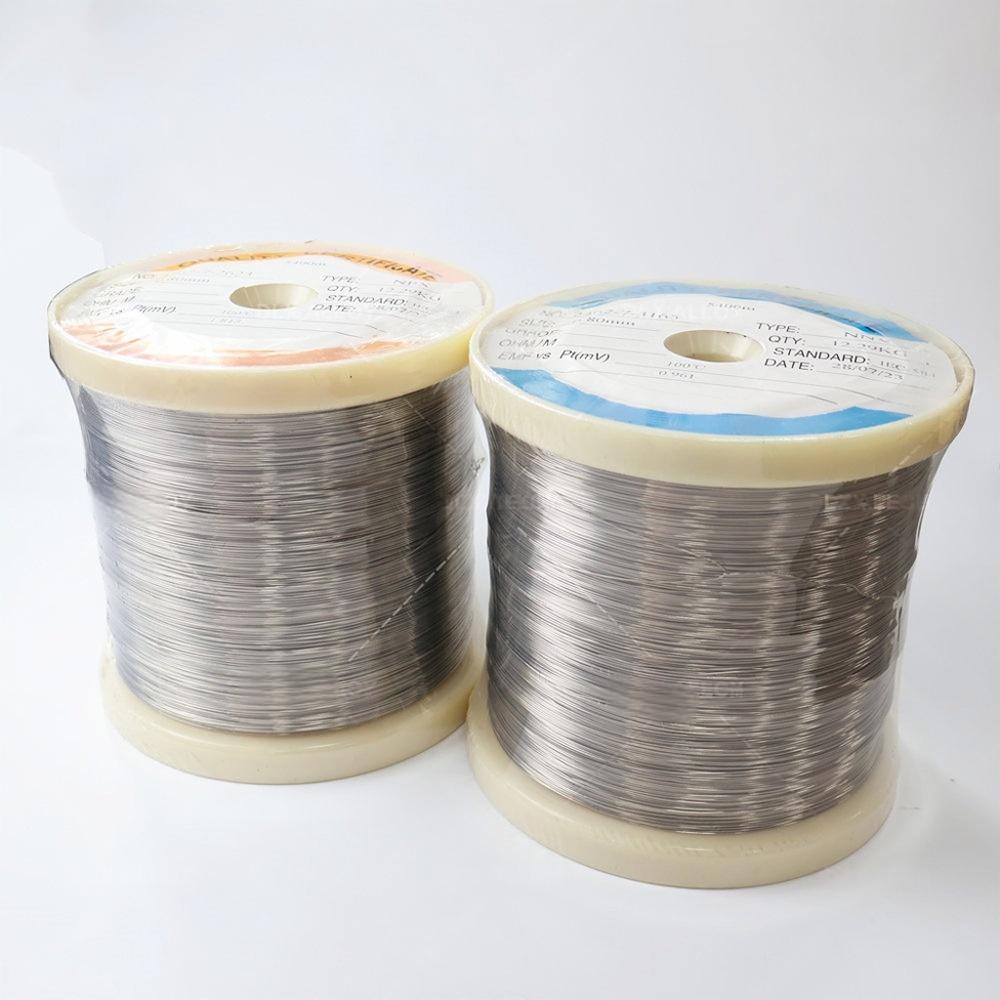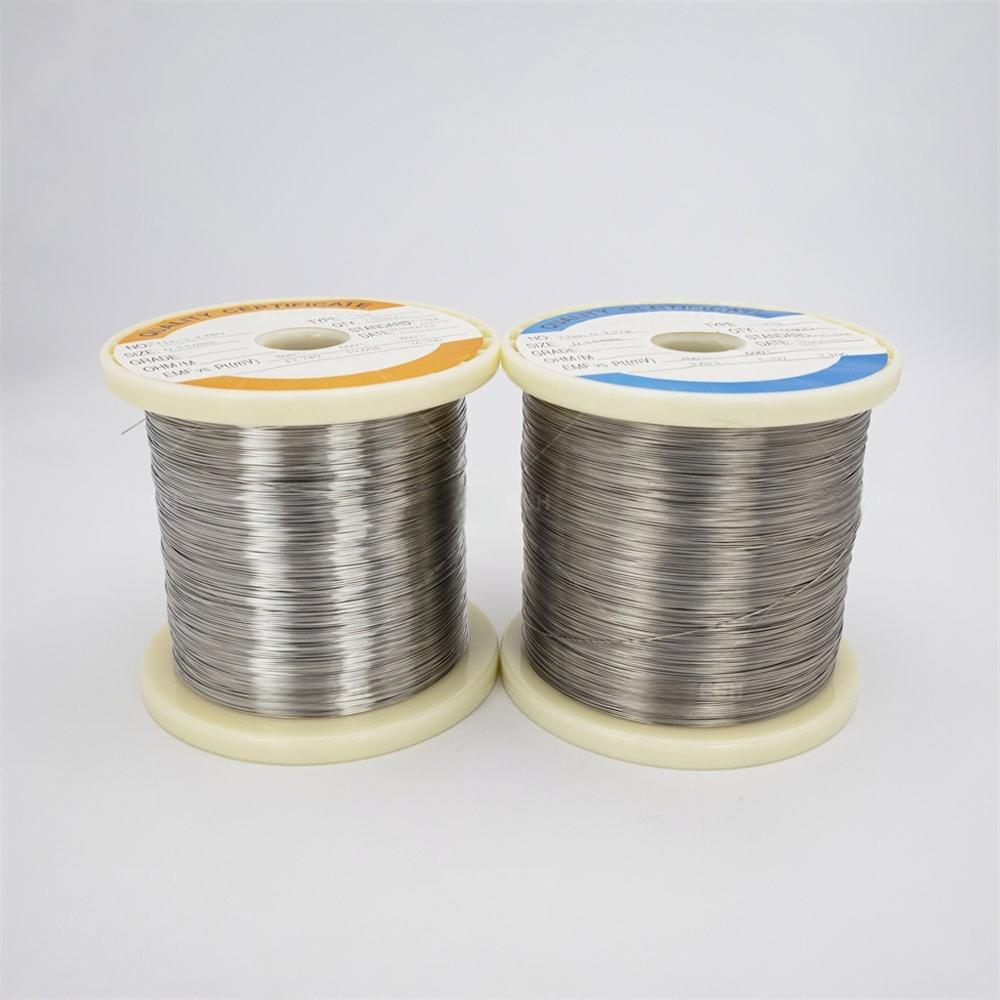 0
0
Products Description

J-type thermocouple bare wire is a key sensor element widely used for temperature detection. It is composed of two different materials of metal wires, usually iron and conventional copper nickel alloy. By measuring the small voltage difference generated by these two metals at different temperatures, the bare wire of the J-type thermocouple can accurately reflect the changes in temperature. This type of bare silk has good linear characteristics and stability, and can be used over a wide temperature range, usually reaching several hundred degrees Celsius or above. Due to its reliability and stability, J-type thermocouple bare wire is widely used in industrial control, heat treatment, furnace temperature monitoring and other fields.
Parameter

Iron copper nickel thermocouple (J-type thermocouple), also known as iron constantan thermocouple, has a nominal chemical composition of pure iron as its positive electrode (JP),
Negative electrode (JN) is a copper nickel alloy, often vaguely referred to as constantan, with a nominal chemical composition of 55% copper and 45% nickel, as well as small but important elements such as cobalt, iron, and manganese. Although it is called constantan, it is different from constantan of nickel chromium constantan and copper constantan, so it cannot be replaced with EN or TN.
The iron constantan thermocouple covers the measurement temperature range of -210~1200 ° C, but the commonly used temperature range is 0-750 ° C.
ASTM | (American Society for Testing and Materials) E 230 | ||
ANSI | (American National Standard Institute) MC 96.1 | ||
IEC | (European Standard by the International Electrotechnical Commission 584)-1/2/3 | ||
DIN | (Deutsche Industrie Normen) EN 60584-1/2 | ||
BS | (British Standards) 4937.1041, EN 60584-1/2 | ||
NF | (Norme Francaise) EN 60584-1/2-NFC 42323-NFC 42324 | ||
JIS | (Japanese Industrial Standards) C 1602-C 1610 | ||
GOST | (Unification of the Russian Specifications) 3044 | ||
Code | +Positive leg | -Negative leg | Temperature Range |
N | Ni-Cr-Si (NP) | Ni-Si-Mg (NN) | -454 to 2300°F (-270 to 1,260°C) |
K | Ni-Cr-Si (KP) | Ni-Al (KN) | –454 to 2,300°F (–270 to 1260°C) |
E | Ni-Cr (EP) | Cu-Ni<constantan> (EN) | -454 to 1600°F (-270 to 870°C) |
J | Iron (JP) | Cu-Ni<constantan> (JN) | -346 to 1,400°F (-210 to 760°C) |
T | Copper (TP) | Cu-Ni<constantan> (TN) | -454 to 700°F (-270 to 370°C) |
B | Platinum Rhodium-30% | Platinum Rhodium-6% | 32 to 3100°F (0 to 1700°C) |
R | Platinum Rhodium-13% | Platinum | -58 to 2700°F (-50 to 1480°C) |
S | Platinum Rhodium-10% | Platinum | -58 to 2700°F (-50 to 1480°C) |
C (W-Re5/26) | Tungsten 5% Rhenium | Tungsten 26% Rhenium | 212 to 4172°F (100 to 2300°C) |
D (W-Re3/25) | Tungsten 3% Rhenium | Tungsten 25% Rhenium | 212 to 4172°F (100 to 2300°C) |
G (W-Re26) | Pure Tungsten | Tungsten 26% Rhenium | 212 to 4172°F (100 to 2300°C) |
For more details, pls directly contact us.
Main features:

Economy: J-type thermocouples are an economical choice due to their lower cost, making them suitable for applications with limited budgets.
Wide temperature range: J-type thermocouples can measure temperatures from -40 ° C to+750 ° C, suitable for various environments.
Good sensitivity: Although the thermoelectric potential of J-type thermocouples is not as high as that of E-type and K-type thermocouples, their sensitivity is sufficient to meet most industrial applications.
Corrosion resistance: Copper nickel alloy (NiCr) has good corrosion resistance, making J-type thermocouples suitable for use in some corrosive environments.
Easy to manufacture and maintain: The manufacturing process of J-type thermocouples is relatively simple and the maintenance cost is low.
Compatibility: J-type thermocouples can be compatible with various types of display and recording devices, making it easy to integrate into different control systems.
Stability: Under appropriate usage conditions, J-type thermocouples can provide stable measurement results.
Application of K-type thermocouple bare wire

Low temperature measurement: J-type thermocouples are suitable for measuring the temperature of low-temperature environments, such as freezers and refrigeration equipment.
Food processing: In the food processing industry, J-type thermocouples are used to monitor and control the temperature during the processing, such as cooking and baking.
Pharmaceutical industry: In the pharmaceutical industry, J-type thermocouples are used to monitor the temperature during drug production to ensure product quality.
Environmental monitoring: In environmental monitoring, J-type thermocouples are used to measure indoor and outdoor temperatures, as well as temperatures under specific environmental conditions.
Laboratory research: In laboratory research, J-type thermocouples are used to accurately measure temperature changes during the experimental process.
Automotive industry: In the automotive industry, J-type thermocouples are used to monitor the operating temperature of engines and other components.
Power industry: In the power industry, J-type thermocouples are used to monitor the operating temperature of transformers, generators, and other equipment.
Matters needing attention

J-type thermocouples are not suitable for high-temperature oxidizing atmospheres because iron is easily oxidized at high temperatures.
In high-temperature reducing atmospheres, the performance of J-type thermocouples is better, but in oxidizing atmospheres, their performance may be affected.
Due to the low thermoelectric potential of J-type thermocouples, they are not suitable for applications that require high sensitivity measurements.
Summary

J-type thermocouple bare wire plays an important role in multiple fields due to its economy, moderate temperature measurement range, and good corrosion resistance. However, when selecting J-type thermocouples, users need to consider their applicable atmosphere conditions and temperature range to ensure measurement accuracy and equipment reliability.



E-mail: Info@hulkalloy.com
Mobile: 0086 13852926463
Tel: 0086 13852926463
Whatapps: 0086 13852926463
Add: Renli Village, Fangxian Town, Danyang City, Jiangsu Province, China